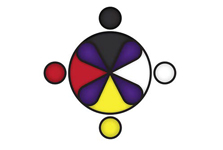Changing the Narrative
A new Indigenous Scholarship Fund is introducing a more balanced approach to student support
By Kathryn Kinahan, BA’86, MLIS’93
The numbers tell the story.
According to Statistics Canada, 1.7 million people identify as Indigenous. The population has grown 42.5
However, the Royal Commission on Aboriginal Peoples estimates that only 0.1
The Schulich School of Medicine & Dentistry wants to change those numbers for the better.
 By establishing the Schulich Indigenous Scholarship Fund, the School looks to create new
By establishing the Schulich Indigenous Scholarship Fund, the School looks to create new
The goal is to deliver the first scholarship to a first-year student enrolled for September 2020.
Importantly, Western University offers a robust Indigenous Services team committed to supporting students through social and cultural events, access to Indigenous spaces and Elder and peer mentoring – keeping them engaged for the duration of their program.
The new Indigenous Scholarship Fund struck a chord with two alumni, Douglas and Katherine Gray, who
“We saw this Scholarship Fund as a chance to do something at Western that will do enormous good in society,” said Douglas Gray, BSc’80, PhD’86, a senior scientist in the Cancer Therapeutics Program at the Ottawa Hospital Research Institute.
“Currently at the School, scholarship opportunities are not spread equally. So this fund is a way to address some of that imbalance,” he said.
At a recent conference,
Dr. Davy Cheng, the School’s Acting Dean, agrees. “If we can recruit and retain medical trainees from Indigenous communities, then there is a good chance that some will return to those communities once
The Grays are aware of the impact of receiving a scholarship. Douglas grew up in a community outside of Toronto. When deciding on a university, he considered all possibilities. The deciding factor was a scholarship.
“Western offered me an admission scholarship which made a huge difference. It made me feel like I was
“Katherine and I both have very warm feelings about Western; we are both alumni and recognize the role








